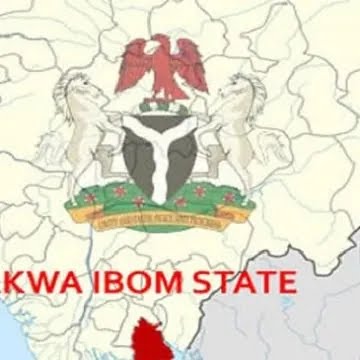WEDNESDAY April 2, 2025 |
By thenewsdesk.ng
Centre for Citizens with Disabilities, CCD, has demanded that Persons with Disabilities (PWD) be included in the development of the host community and the implementation of the Petroleum Industry Act.
Founding Executive Director of the Centre, Mr David Anyaele, said CCD has gathered key issues relating to disabilities in Akwa Ibom State, to create a form of demand charter that could engage different stakeholders who would benefit from petroleum exploration in the state.
Anyaele stated that the organisation had improved the knowledge of disability community leaders of different disability clusters on providing the law regarding their rights and responsibilities as citizens of Akwa Ibom State.
“We have been able to secure the commitment of stakeholders within Akwa Ibom on Persons with Disabilities, Petroleum Industry Act, Host Community Development, and Trust Groups on the need to include PWD in the implementation of relevant sections of the Petroleum Industry Act.
“Today, we succeeded in gathering key issues of importance for disabilities in Akwa Ibom State to create a form of demand charter that they can use to engage different stakeholders to ensure full benefits of resources coming from petroleum exploration in Akwa Ibom State.
“We have also been able to improve the knowledge of the disability community, leaders of different disability clusters on the provision of the law regarding their rights and responsibilities as citizens of Akwa Ibom State,” he said.
He explained that participants would carry knowledge acquired to their communities by engaging different stakeholders from their families to their communities at the state and national levels.
Anyaele commended Gov Umo Eno of Akwa Ibom State for enhancing the quality of lives of PWDs in the state.
“In particular, we have three persons with disabilities who are working with the governor. What I mean is that the state is paying attention to the plight of PWDs.
“With the knowledge they have acquired, they are going to be supporting the government in improving the quality of life of PWDs in the state to ensure that no one is left behind because of disabilities.
“These are the successful stories, and many more we have seen. We will invest in the success as time goes on.”
Mrs Nene Bassey, from Eket Senatorial District and Special Adviser to the Governor on Persons with Disabilities, hailed the programme, noting that the workshop has been highly informative and educating.
According to her, she realised that a good number of PWDs who turned up had asked engaging questions from the point of knowledge gained so far.
“A good number of PWDs were not armed with the Discriminatory Act of Nigeria. They were also not aware of the Petroleum Industry Act (PIA 2021), but through this programme, a whole lot of them have been armed with what it entails with each of these acts, and what that comes in tandem with disabilities, and how they can seek inclusion at their various host communities.
“This has to do with the host communities and does not just come across all the 31 local governments in Akwa Ibom State. If you are not among the host communities, you cannot seek what is fundamentally rightfully yours.
“This programme is very helpful. On that note, I would like to plead with the organisation of the programme because I have seen that this is apt in a moment like this, this economic meltdown that we find ourselves in Nigeria, and disabilities are really on the downside when it comes to the way the economy bits them because a good number of them are unemployed.
“Through this particular programme, I sincerely appreciate the founder of CCD and the organisers who put this particular training or workshop into place for us in Akwa Ibom State.
“These have promoted a good number of us capacity so that as we are going back home to our different local governments will be able to engage relevant stakeholders who are in the position of decision making in different host communities.
“I want to plead with them to maybe, within six months before the year runs out, they come back so that we can collectively carry out data collection which will help us, especially within the host communities, to effectively and implement inclusive projects across these host communities,” she explained.
Related posts
Categories
- Advertisements (1)
- Agriculture (45)
- Breaking News (26)
- Business (598)
- Crime (987)
- Education (319)
- Entertainment (128)
- Features (13)
- For The Records (43)
- Foreign News (1,186)
- Health (219)
- Home News (332)
- Interview (9)
- Judiciary (348)
- Lifestyle (140)
- Local News (111)
- National News (1,447)
- Opinion (26)
- Politics (1,005)
- Religion (157)
- Science and Technology (125)
- Security (680)
- Sports (878)
- States' News (817)
- Transportation (327)
- Uncategorized (10)

